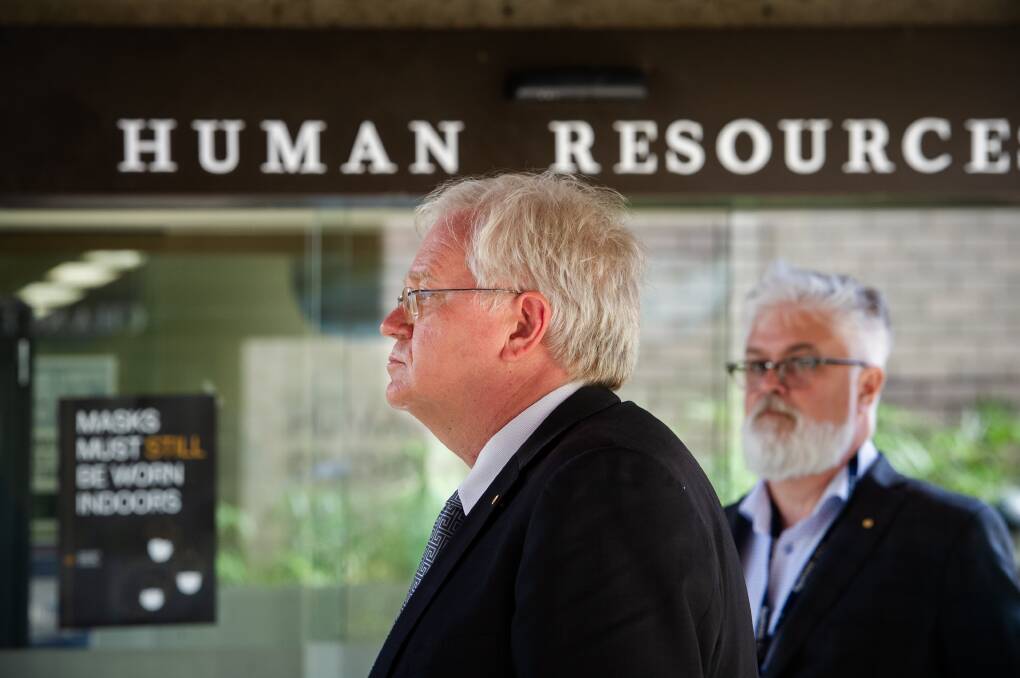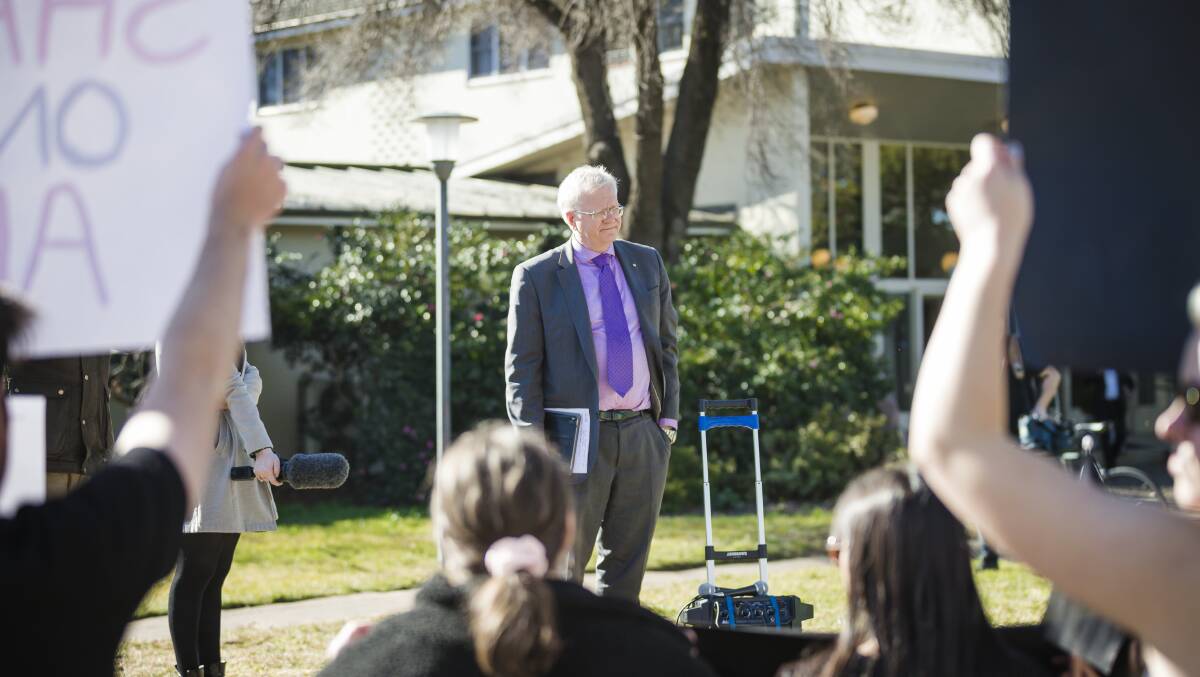
The Australian National University is to spend $3.3 million over the next 12 months to put in place help for victims of sexual assault and harassment.
The money will be spent on new staff to help victims. All students will also have compulsory "consent training" so they know when sex is consensual.
This training would be online but also face-to-face to "make it more than just a tick-box", as the university's vice-chancellor, Professor Brian Schmidt, put it.
Under the ANU's "Student Safety and Wellbeing Plan", much of the money will be used to employ 14 staff to deal with incidents involving students, either by offering emotional support and advice to students who allege they have been assaulted, or for them to put formal complaints into the university system to be investigated.
The focus of the new staff's work would be the 6,000 or so students who live in halls of residence.
If a complaint is made by one student against another, the alleged perpetrator can be banned from the campus while under investigation but continue to have online education, according to Professor Grady Venville, one of the ANU's deputy vice-chancellors.
Last year, 21 complaints were upheld. In half of them, the perpetrator was thrown out of the ANU and in a quarter (presumably) he was suspended, Professor Venville said.
She said the matter would be judged on "the balance of probabilities". In courts of law, there is a tougher standard of proof ("a presumption of innocence" so the accused is assumed innocent until proven guilty beyond reasonable doubt).
The university said the new measures would "bolster work under the University's Sexual Violence Prevention Strategy" which was launched in 2019.
Professor Schmidt said the new plan was "a significant step" in the university's work to "tackle unacceptable behaviours that plague our society".
"We are building a community and a culture that prevents sexual assault and sexual harassment, that supports, cares, and provides justice for victim-survivors, and ensures perpetrators face the consequences of their actions."
Students would have compulsory "consent training" at the start of their time in university. It would, a statement said, mean "embedding a zero-tolerance approach in ANU culture, including policies, language, training and disciplinary procedures."
Complaints of sexual harassment and assault by or against students would ultimately be investigated by the university's Registrar.
The new action by the university follows a report in 2017 by the Australian Human Rights Commission on sexual assault and sexual harassment at Australian universities.

The report found that one in five students in 29 Australian universities had been sexually harassed on campus in 2106 (not including travel to and from the university). In addition, 1.6 per cent of student respondents said they had been sexually assaulted.
Since that report and an internal ANU review, the university said it had already implemented several recommendations.
These included:
- "Establishing the Respectful Relationships Unit to lead education on consent and connect survivors with support services when they need.
- Employing specialist case managers to who work to support survivors who disclose to the university.
- Establishing a specialist Student Safety and Wellbeing team.
- Launching an online disclosure tool for the community, which also advises on how to report instances of sexual misconduct and access support options.
- Publishing a sexual misconduct policy.
- Training thousands of ANU students and staff on sexual assault and sexual harassment, including awareness and responding to disclosures."







